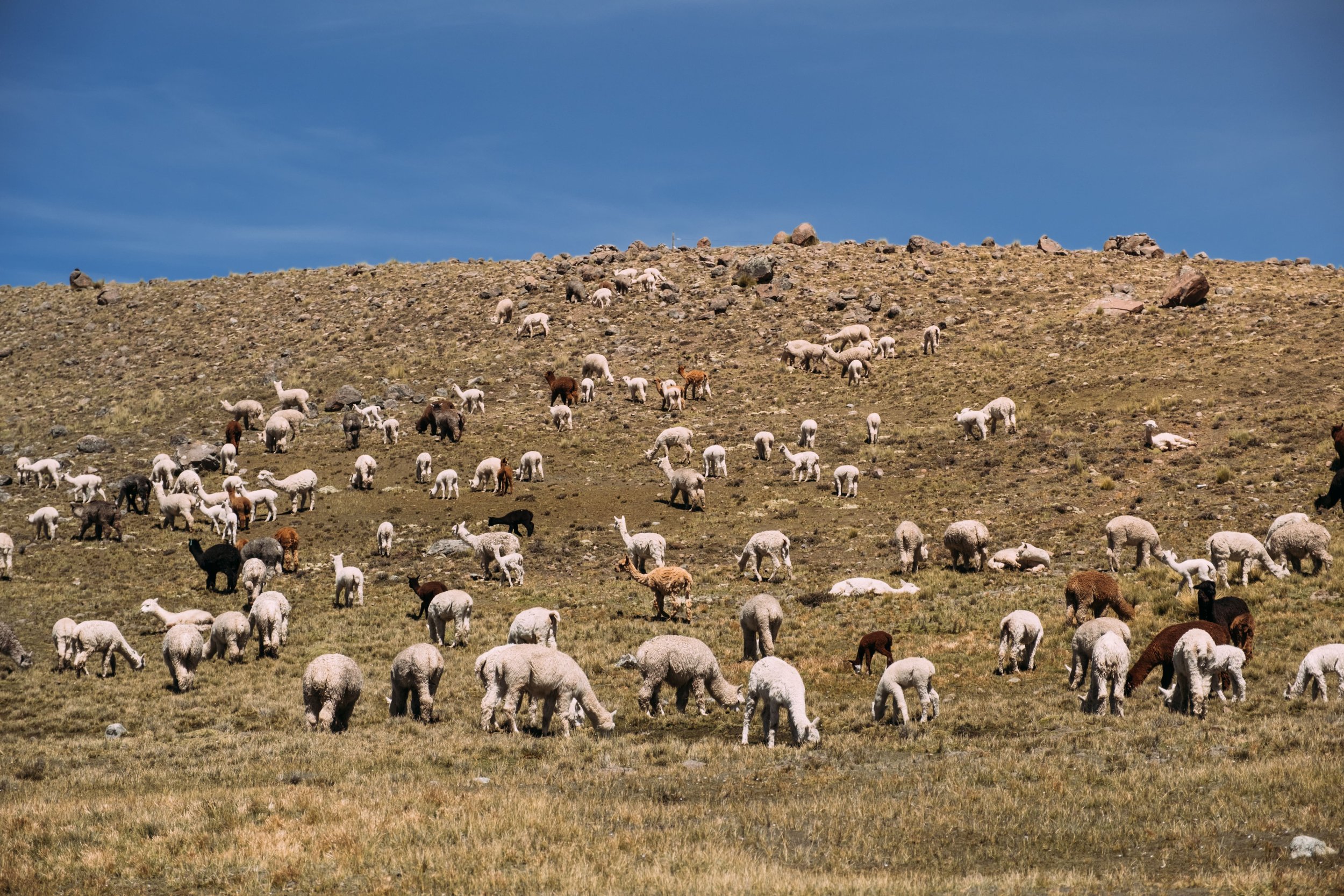
Our company is founded on bringing the limitless benefits of alpaca wool to the world. We do not merely provide textiles but instead deliver a lifestyle of comfort, elegance, and sustainability.
ABOUT ALPACA
What is an Alpaca?
Alpacas are domesticated South American camelids closely related to llamas. They are also primarily bred for their luxurious fiber.
Thanks to their unique fiber properties, alpacas can handle low temperatures, snow, and rainy seasons.
They feed only on the tops of pastures and consume minimal water, adapting to the limited water sources in their habitat.
They are native to the high Andes mountains of Peru, Bolivia, and Chile.
Gentle animals thrive at altitudes above 3,500 meters, where the living conditions are nothing short of harsh. In addition, fibre industries thrive because of alpaca support in Peru, especially in areas like Arequipa, Cusco, or Puno, where the alpaca is central to the culture and the economy.
The Benefits of Alpaca fiber
Softness and Comfort: Extremely soft, it is supple and pleasing to the touch without the prickle commonly found in sheep wool;
Thermal Insulation: The hollow structure of the alpaca fibre enables the garment to keep the air inside and, therefore, the warmth as well in winter and coolness in summer;
Hypoallergenic: It contains no lanolin, which makes it often possible for wool allergy sufferers to wear alpaca;
Durability: It is more durable than regular wool and, therefore, more resistant to tearing or pilling; it will generally keep its shape for as long as it is owned.
Sustainable and Eco-Friendly Practices
Alpacas have little environmental impact. They graze gently on top of the grass and protect vegetation, and their soft feet have fewer detrimental effects on the land. They are raised with minimal water consumption because they have little lanolin content. Alpacas are shorn yearly, providing supplemental revenues for Andean communities' livelihoods. Typically, an alpaca offers 2.5 to 4 kg of fibre per year, and 40% of babies are in the industry's top tier.
Caring for Alpacas
Unlike keeping other livestock, keeping alpacas is not labour—or material-intensive. They are highly social animals and are happiest in small herds. They need a well-balanced diet, including pasture, hay, or a custom feed supplement. Regular check-ups of their general health and vaccinations are mandatory.
Enviromental Impact
-

Low Water Consumption
Alpaca fiber contains low lanolin percentages, reducing the water needed for yarn production.
-

Natural Colors
Alpaca fiber comes in nine pure colors, which can be blended to create up to 22 natural shades, allowing for a diverse and vibrant natural color collection.
-

Eco-Friendly Grazing
Alpacas gently graze on the tops of grasses without damaging their habitat. Their soft feet do not destroy the land, promoting sustainable pasture growth.
Experience the Luxury of Alpaca Products at Hometex Peru
At Hometex Peru, we offer a diverse range of alpaca wool products. There are throws for cosy warmth, scarves for style, stuffed animals for hugging. Hometex Peru offers its products at affordable prices, made with quality and sensitivity.
Feel free to browse our many alpaca products and spoil yourself with their softness and comfort!






